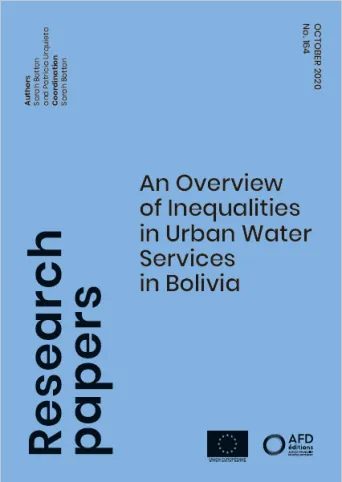Share the page
An Overview of Inequalities in Urban Water Services in Bolivia
Published on

Urban drinking water services are a particularly prolific research object to think about inequalities in the city because they are by definition at the interface of economic, social and environmental problems and they invite to reflect on the sustainability of the territories.
Beyond the most obvious reading of inequality of access to services (having access to the public service network or not), there are indeed a large number of other situations related to inequalities that we seek to identify and characterize in this paper, refering to the cases of Bolivian cities: spatial, vertical, horizontal inequalities, competing, intersecting inequalities, etc. This typology also allows a dynamic analysis of the local policies defined and implemented by the authorities and by the operators and the implications these policies have on the urban form.
Useful Information
-
Authors
-
Patricia Urquieta, Sarah BOTTON
-
Coordinators
-
Sarah BOTTON
-
Edition
-
164
-
Number of pages
-
24
-
ISSN
-
2492 - 2846
-
Collection
-
Research Papers
-
Other languages
